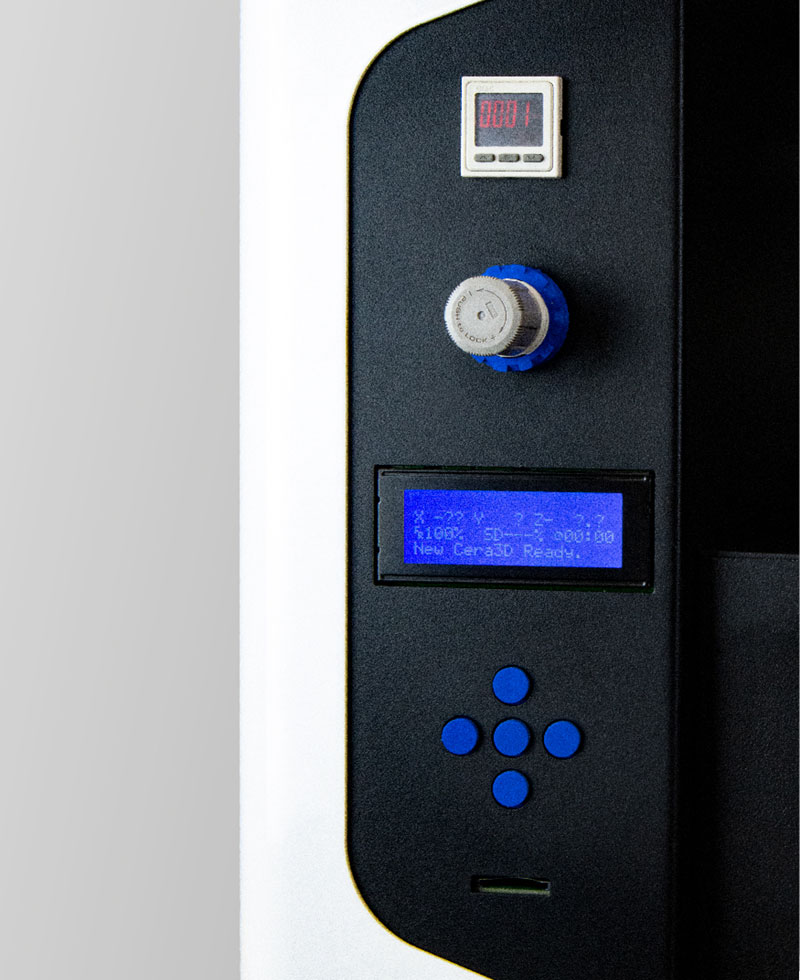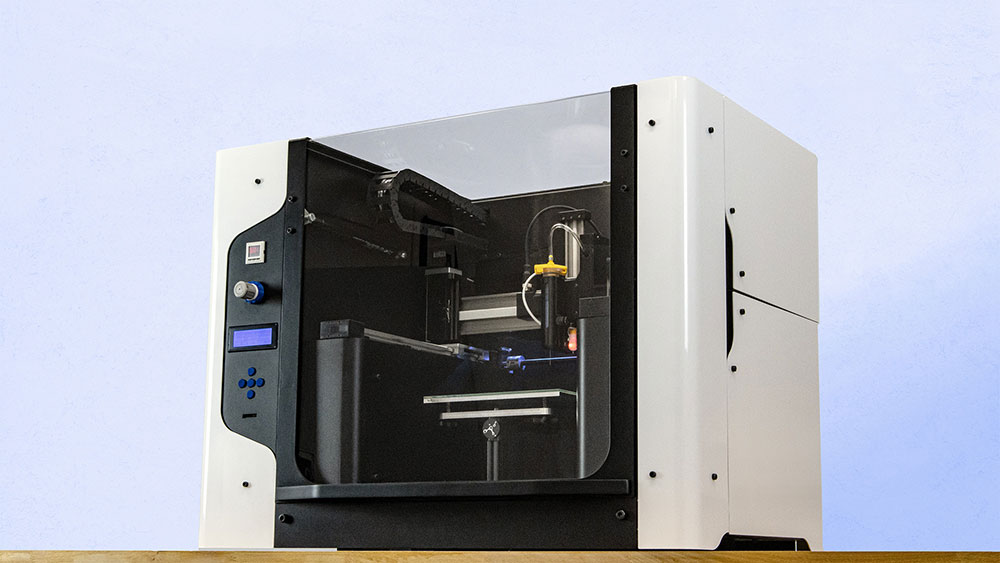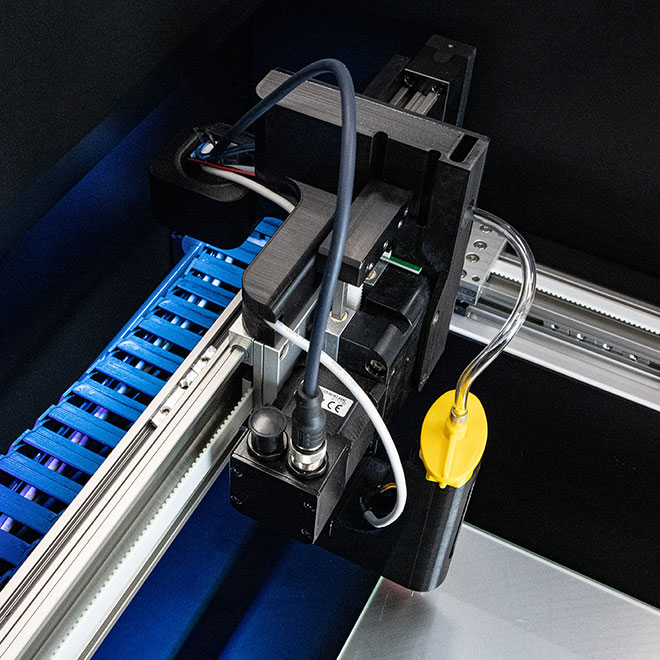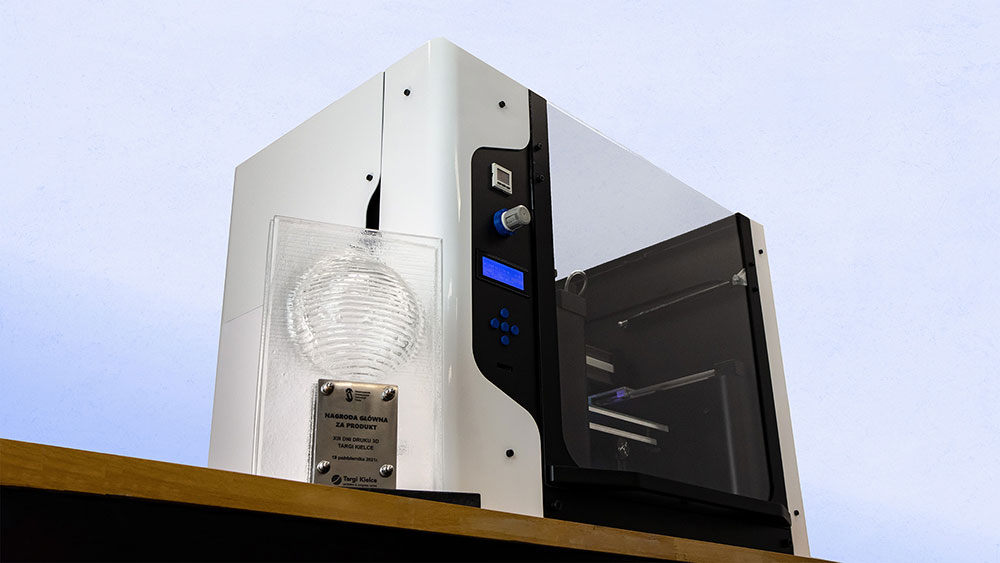E-NIS
Our first Direct Ink Writing research
3D printer, dedicated to the needs
of Institute of Power Engineering

E-NIS
Our first Direct Ink Writing research
3D printer, dedicated to the needs
of Institute of Power Engineering
Our first Direct Ink Writing research 3D printer, dedicated to the needsof Institute of Power Engineering
Tailor-made R&D support
The starting point of our exploration of DIW technology, the E-NIS is a tailor-made solution for our partner’s needs. Institute of Power Engineering (IEn), a Warsaw-based research facility, focuses mostly on generation of energy and vast research into i.a. power cells or energy storage. They needed a device for printing custom made pastes to stimulate their research.
However, the E-NIS will find use in any industry or materials lab, where 3D printing of semi-liquid materials is a must. As a versatile 3D Direct Ink Writing printer, it fits perfectly into teams working on new materials, flexible electronics, ceramic insulators, UV-curable materials, silicones and conductive pastes.

Every part of the device was carefully designed, produced and assembled in our Polish workshop to provide the best quality product possible.
The combination of sturdiness and precision provides the user with a simple and reliable tool, helpful in the initial stages of proof-of-concept or as a universal base for prototyping original materials in 3D printing.

Customizable 3D printer
E-Nis was designed as a modular solution that could be tailored to its user’s needs. Construction of the 3D printer offers the possibility of adjusting the build volume, amount of printing toolheads or customization of the control panel.
The basic E-NIS has a build volume of 230 x 180 x 70 mm, one toolhead for single paste extrusion and a simple display monitor. It could, however, be both down- and upscaled, equipped with a touchscreen of choice and a dual paste extruder or solutions for using two-ingredient materials via an in-built mixer.


So far, two E-NIS 3D printers have been built on behalf of the Institute of Power Engineering (IEn) to stimulate their research in the field of energy generation and storage. Printed on them are, among other things, sealing elements for the stacks of solid-oxide cells used to generate hydrogen in pioneering installations currently under development among Orlen Group entities.
The second iteration of E-NIS received the Main Award for the Best Product at the 12th Days of 3D Printing in Kielce, 2021.
